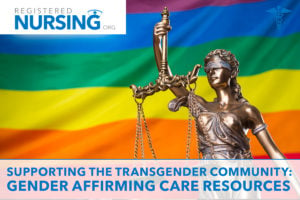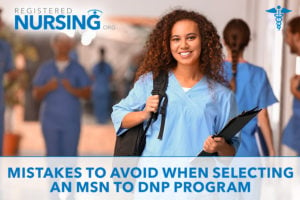3 Great Options for Alternative Nursing Specializations
Nursing is a dynamic and multifaceted profession that offers a plethora of specialized fields beyond traditional bedside care. Three distinctive nursing specialties that are gaining prominence in the healthcare industry are holistic nursing, transcultural nursing, and parish nursing. These unique roles emphasize the importance of treating the whole person, addressing cultural diversity in healthcare, and providing spiritual support to individuals and communities. This article will explore these alternative nursing specialties and their significant contributions to the healthcare landscape.

Holistic Nurses
Holistic nurses are healthcare professionals who embrace a comprehensive approach to patient care, recognizing the interconnectedness of the mind, body, and spirit. They strive to create a healing environment that addresses physical, emotional, mental, and spiritual well-being. Holistic nurses often incorporate complementary and alternative therapies into their practice, such as mindfulness, meditation, aromatherapy, and energy healing, to support patients on their journey to health and wellness.
These nurses assess patients holistically, taking into consideration not only their physical symptoms but also their emotional and spiritual needs. Their role involves developing individualized care plans that encompass a wide range of interventions to promote healing. Holistic nurses contribute to a more patient-centered and comprehensive healthcare experience by emphasizing the importance of treating the whole person. Patients under the care of holistic nurses often report increased satisfaction and improved outcomes, highlighting the significant impact of this nursing specialty.
- Education: Aspiring holistic nurses begin with a Bachelor of Science in Nursing (BSN) degree. However, some may choose to pursue a Master of Science in Nursing (MSN) with a specialization in holistic nursing.
- Certification: The American Holistic Nurses Association (AHNA) offers certification options for holistic nurses, such as the Holistic Nurse, Board Certified (HN-BC) credential. While certification is not mandatory, it demonstrates expertise in the field.
RELATED: Nursing Certifications: Why You Need It & How to Get One
Transcultural Nurses
Transcultural nurses play a crucial role in healthcare by providing culturally competent care to individuals from diverse backgrounds. In an increasingly globalized world, they recognize the profound influence of culture on health beliefs, behaviors, and healthcare access. Transcultural nurses serve as advocates for patients, ensuring that their healthcare needs are met with sensitivity and understanding. Their responsibilities include conducting cultural assessments to understand patients’ beliefs and values, educating healthcare teams about cultural competency, and facilitating communication between patients and providers.
Transcultural nurses are essential in reducing health disparities among culturally diverse populations, as they work tirelessly to acknowledge and respect cultural differences. By improving patient-provider relationships and enhancing the quality of care through cultural competence, transcultural nurses promote greater healthcare equity and inclusivity. Their work underscores the significance of embracing cultural diversity in healthcare to provide the best possible care for all individuals, regardless of their background or heritage.
- Education: Transcultural nurses begin by obtaining a BSN degree. They may also pursue additional training in transcultural nursing through workshops or certification programs.
- Certification: The Transcultural Nursing Society (TCNS) offers certification as a Certified Transcultural Nurse (CTN). While certification is optional, it demonstrates expertise in transcultural nursing.
Parish Nurses
Parish nurses, also known as faith community nurses, are uniquely positioned in religious settings, offering holistic healthcare and spiritual support to individuals and communities. These specialized nurses operate within faith-based organizations like churches, synagogues, mosques, and other religious institutions. Parish nurses provide care that encompasses spiritual and physical aspects. Their responsibilities include offering spiritual support and counseling to individuals facing health challenges, conducting health assessments and providing basic healthcare services, and facilitating health education and wellness programs within their faith communities.
By integrating faith and healthcare, parish nurses foster a sense of belonging and spiritual growth among their community members, helping individuals navigate health challenges with a supportive network. They advocate for the synergy of faith and health, encouraging individuals to take an active role in their well-being and healing processes. Parish nurses play a vital role in nurturing the spiritual health of their faith communities, contributing to overall well-being, and creating a profound connection between faith and healthcare within religious settings.
- Education: Parish nurses typically hold a BSN degree and complete additional training or coursework in faith community nursing.
- Certification: Faith Community Nurses International offers certification as a Faith Community Nurse. While certification is not mandatory, it demonstrates competency in faith-based nursing practice.
Latest Articles & Guides
One of the keys to success as a registered nurse is embracing lifelong learning. Our articles and guides address hot topics and current events in nursing, from education to career mobility and beyond. No matter where you are on your nursing journey, there’s an article to help you build your knowledge base.
Browse our latest articles, curated specifically for modern nurses.


How Do I Find Alternative Nursing Positions?
If you’re looking for alternative nursing positions beyond traditional hospital roles, there are several avenues you can explore to find opportunities in various healthcare settings. Here are some places to start your search:
- Online Job Boards: Websites like Indeed, Glassdoor, and LinkedIn often list nursing positions in a variety of settings, including clinics, nursing homes, schools, community health centers, and home healthcare agencies. You can use search filters to narrow down your options based on location, specialty, and desired work environment.
- Specialty Nursing Associations: Joining professional organizations and specialty nursing associations related to your area of interest can provide access to job postings, networking opportunities, and resources for career advancement. Examples include the American Nurses Association (ANA), Emergency Nurses Association (ENA), Association of periOperative Registered Nurses (AORN), and Hospice and Palliative Nurses Association (HPNA).
- Healthcare Facilities’ Websites: Check the career pages of hospitals, medical centers, outpatient clinics, long-term care facilities, and other healthcare institutions in your area. Many organizations post job openings directly on their websites, and you can often sign up for email alerts to receive notifications about new opportunities.
- Staffing Agencies: Explore opportunities with healthcare staffing agencies that specialize in placing nurses in temporary, contract, or per diem positions. These agencies work with a wide range of healthcare facilities and can help match you with alternative nursing roles based on your skills, preferences, and availability. Examples include NurseChoice, FlexRN, Cross Country Nurses, and Maxim Healthcare Services.

